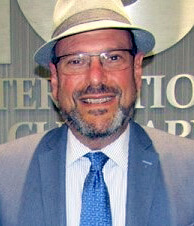12 Things for Young Culinarians to Know
In honor of the 12 Days of Christmas, and December being the 12th month, I will recap the 12 things that young culinarians must know to be able to keep their jobs in a commercial or corporate kitchen.
- If the chef (or boss) asks you to do something, you ask yourself three questions: Is it illegal? Is it immoral? Is it dangerous? If the answer to all three is NO, the only thing you can say is “Yes, Chef.”
- If you don’t know how to do what the chef is asking you to do, you say: “Yes Chef, please show me how you would like it done.”
- Do what the chef says, not what you think the chef wants. If you are not sure what the chef wants, then ask the chef directly.
- “My bad” is not an option. No one will pay you for excuses. They want you to do what you are supposed to do when you are supposed to do it.
- A well-run commercial kitchen will earn $4 to $7 net profit (before tax) on $100 of sales. (At first you might not see why you need to know this, but young culinarians needs to realize that every dollar he or she wastes severely cuts into the company’s profit.)
- What do you call a cook who doesn’t watch food costs? “Unemployed.”
- If you have nothing to do in a commercial kitchen, you clean.
- Clean as you go!
- Arriving 15 minutes early is late. You need to arrive early so you can change into your uniform, hit the restroom, read the prep sheet, etc., and be at your station ready to go five minutes early.
- You need to be at work every day. Calling in sick is better than not calling in, but the work doesn’t get done that way. You are expected to be at work every day you are scheduled.
- Remember the Seven Ps of Professional Cooking:
Planning
Preparation (mise en place)
Presentation
Passion (note: The passion needs to be not only a passion to cook, but a passion to work hard, as well)
Pride in What You Prepare
Presentation (You eat first with your eyes)
Profit (If the business doesn’t make a profit on you, you will be gone) - You are being hired not to cook, but to work. Work will include cooking, but cooking isn’t the most important factor. Don’t believe me? Review the rules above and note that only number 11 refers to cooking.

This article was originally published by the Center for Advancement of Food Service Education (CAFÉ) in December, 2012. We thank the Center for Advancement of Food Service Education for allowing Adam to reprint his articles with Flagship Culinary. If you would like more information on Adam’s promotion programs, or want to know about additional articles, please contact him at aweiner@flagshipinc.com.
